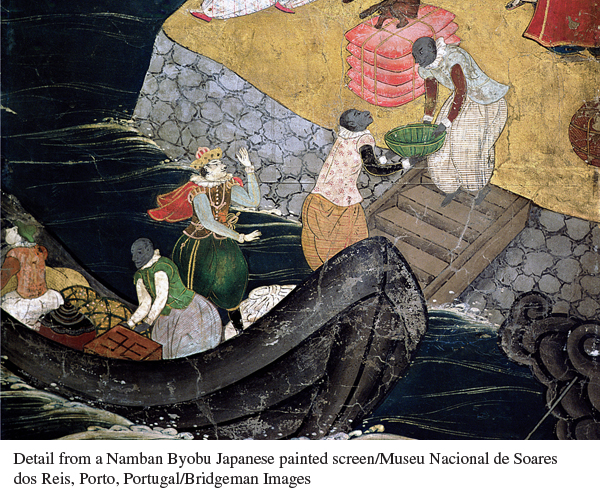A History of Western Society: Printed Page 426
A History of Western Society, Value Edition: Printed Page 410
A History of Western Society, Concise Edition: Printed Page 427
Introduction for Chapter 14
14
European Exploration and Conquest
1450–1650
In 1450 Europeans were relatively marginal players in a centuries-
By 1550 the European search for better access to Asian trade goods had led to a new overseas empire in the Indian Ocean and the accidental discovery of the Western Hemisphere. South and North America were soon drawn into a global network of trade centers and political empires, which Europeans came to dominate. The era of globalization had begun, creating new political systems and forms of economic exchange as well as cultural assimilation, conversion, and resistance. Europeans sought to impose their values on the peoples they encountered while struggling to comprehend these peoples’ societies. The Age of Discovery (1450–1650), as the time of these encounters is known, laid the foundations for the modern world.▪

CHAPTER PREVIEW
What was the Afroeurasian trading world prior to the era of European exploration?
How and why did Europeans undertake ambitious voyages of expansion?
How did European powers acquire colonies in the Americas, and how were they governed?
How was the era of global contact shaped by new forms of exploitation, commercial exchange, and forced migration?
How did new encounters shape cultural attitudes and beliefs in Europe and the rest of the world?
Chronology
| 1271–1295 | Marco Polo travels to China |
| 1443 | Portuguese establish first African trading post at Arguin |
| 1492 | Columbus lands in the Americas |
| 1511 | Portuguese capture Malacca from Muslims |
| 1518 | Spanish king authorizes slave trade to New World colonies |
| 1519–1522 | Magellan’s expedition circumnavigates the world |
| 1521 | Cortés conquers the Mexica Empire |
| 1533 | Pizarro conquers the Inca Empire |
| 1602 | Dutch East India Company established |